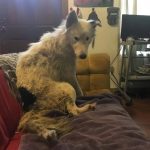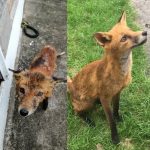Left Behind But Not Forgotten — The Rescue of Baby Sabuk
- QuynhGiang
- July 6, 2025
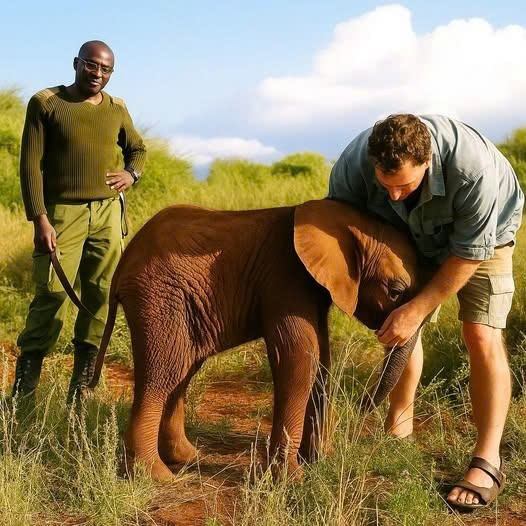
Left Behind But Not Forgotten — The Rescue of Baby Sabuk
In the vast and unpredictable wilderness of Kenya’s Amboseli ecosystem, survival often comes down to timing and instinct. Among the dust and sunlight near a watering hole, a scene quietly unfolded that captured both the heartbreak and hope so often found in the wild. A herd of elephants had gathered to drink, their massive shapes moving with grace. Among them, a tiny baby elephant tried repeatedly to join in—his presence more fragile than firm.
Despite his efforts, the baby was pushed away by the larger elephants. It wasn’t aggression, but nature’s harsh order—when something’s wrong, the herd sometimes steps back. When the elephants finished drinking and began to leave, the little one tried again to follow. But his steps were slow, uncertain. And then he was alone.
From a nearby lodge, the owners of Amboseli Bush Camp watched with growing concern. Something was wrong, unmistakably wrong. This baby wasn’t just lost—he’d been left behind. Acting quickly, they contacted Big Life Foundation, a renowned conservation organization in East Africa. Within moments, rangers hopped on motorbikes and raced toward the scene.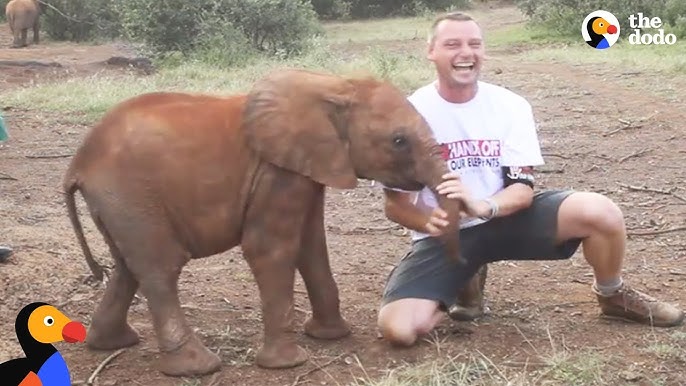
When they found the calf, their suspicions were confirmed—he had truly been abandoned. There was no sign of his mother or the herd. His ears were still soft and pink, suggesting he was less than two months old. Weak and thin, he stood there in quiet confusion. This baby, who would later be named Sabuk, had no idea how close he had come to death.
The Kenya Wildlife Service and the Sheldrick Wildlife Trust were alerted. As arrangements were made for an airlift rescue, Big Life’s rangers, led by Craig Millar, remained by Sabuk’s side, offering calm company and protection. When the helicopter finally arrived, Sabuk showed surprising strength—spirited and feisty despite his fragile state. But he still refused to drink any water, a worrying sign.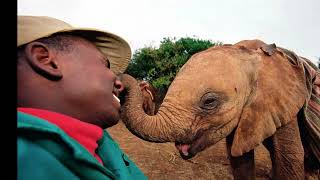
It wasn’t until he reached the Sheldrick Wildlife Trust’s Kaluku Field Headquarters that Sabuk truly began his second chance. There, surrounded by trained caregivers and the comforting routine of bottles and blankets, he gulped down four full servings of milk. The team named him Sabuk, meaning “big” in Maa, because despite his age, he was unusually large for a calf of only 4 to 6 weeks.
Back near the watering hole, a sad discovery cast a shadow—rangers found the carcass of a female elephant. It’s still unclear whether she was Sabuk’s mother, but the timing and location point toward a heartbreaking likelihood.
And yet, Sabuk is alive.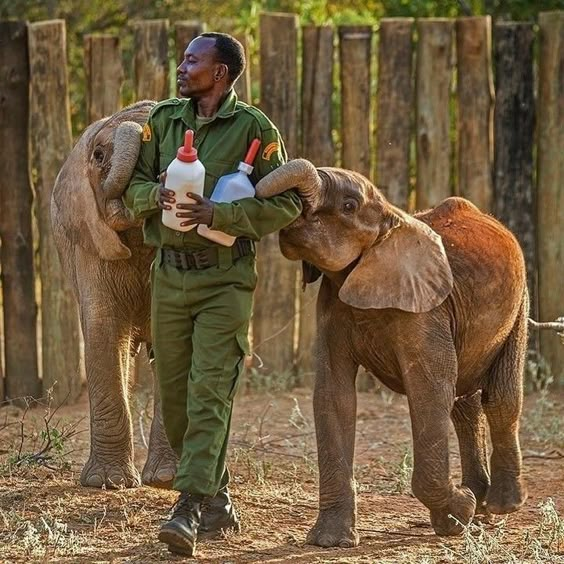
That in itself is a miracle.
Because someone noticed. Because someone cared. Because a chain of people—from lodge owners to rangers to veterinarians—moved fast, moved with purpose, and refused to let a tiny life disappear into the dust.
Now, Sabuk is being nurtured with the hope that one day, he’ll walk back into the wild not as a frightened orphan, but as a strong, wise elephant ready to claim his place under the African sun.
